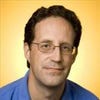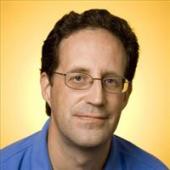Identified: Because LinkedIn Is For Old People
Startup career site taps Facebook social and professional graphs of those too cool for LinkedIn.
September 23, 2011

When I spoke with Brendan Wallace, co-founder and CEO of the startup professional networking site Identified, I doubt he was trying to make me feel old and depressed. I'm probably being oversensitive. Old people are like that, I guess.
Identified is a search tool for recruiters based on the Facebook social graph. Why not the LinkedIn professional graph? Because LinkedIn is for old people, not young professionals, fresh from good schools, who have their whole lives ahead of them.
"Most people in their 20s are not creating profiles on LinkedIn," Wallace said. "If you look at people under the age of 35, Facebook has 130 to 140 million. That demographic on LinkedIn is about 8 to 9 million. Younger people are using Facebook as their professional graph, whereas the people you know on LinkedIn tend to be older." He added that the average age of the membership on LinkedIn is 43 to 44 and "hasn't gotten any younger."
As an active LinkedIn user who left 44 behind a few years ago and isn't getting any younger, I couldn't help bristling at all this. I'm not saying Wallace is wrong, but it's no fun being old.
Meanwhile, I'm grouchy about my Identified score, which stands at 45. The score is a factor of work history, education, and professional contacts, and letting you see your own score is something Identified added when it announced its public beta this week. A score of 45 isn't horrible--I've been reassuring myself of that fact by browsing the profiles of friends and coworkers whose scores are lower--but Wallace, for example, is a 91. A 45 seems like a challenge to my claim to social media guruhood.
The score is simply a way of letting you know whether recruiters are searching for you, or someone like you, Wallace said. It's a numerical reputation of the ranking the Identified search engine uses internally, he said.
Wallace and co-founder Adeyemi Ajao are graduates of the Stanford Graduate School of Business and originally piloted the social search engine there as a tool for recruiters to find the most talented, best connected students. Before long, they had more resumes on file than the school career office, which actually forced them to shut the site down, Wallace said. Identified embarked on a plan to expand the service school by school before ultimately deciding to open it up more broadly. Can it be an accident that this sounds like a replay of the Facebook story?
Forbes writer Tomio Geron does a good job of covering the origin story in more detail.
Prior to this week, the Identified service was available in a fairly limited test to between 20,000 and 30,000 people, Wallace said. Now, it's growing by about 2 million people a day, Wallace said. One of the ways you can boost your Identified score is by inviting people to join the service, which they can connect to using their Facebook identities. Another is by fleshing out your professional profile with additional information on former employers, employment dates, college major, grade point average, and so on.
This highlights one of the ways Facebook is an imperfect match for recruiting and professional networking. Young people who can't be bothered with LinkedIn may record some of their professional information on Facebook, but because professional networking isn't the primary purpose of Facebook, that data is not necessarily complete.Facebook officially states that around 50% of members include educational and professional information in their profiles, Wallace said, but "we're seeing it's closer to 70% to 80%." Nevertheless, when you sign up for Identified, the service prompts you to fill in the blanks. In fact, I found it didn't do a particularly good job of pulling in the limited professional and educational information that is present on my Facebook profile, so I had to enter that information manually.
I suggested they ought to be tapping the LinkedIn API to offer people who do have a professional profile there to import it. "That is something we would like to do, eventually," Wallace said. "As we grow in scale, we will have the opportunity to integrate with other social networks, including LinkedIn--which does have tremendous data in it."
On the other hand, the virtue of Facebook is not just its larger membership but that its members spend so much more time on the service, Wallace said. LinkedIn members in contrast tend to only check in occasionally and only update their profiles when they are looking for a job or have just changed jobs.
The generation that grew up with Facebook following them all through college doesn't see the point of investing time and energy in LinkedIn, but they're on Facebook every day, Wallace said. That level of engagement makes up for a few gaps in online resume data, he said.
There is another career and professional service built off the Facebook social network, BranchOut, but BranchOut is different because it is as implemented as a Facebook app, meaning that the entire service is embedded inside Facebook. Identified operates as separate website, integrated with Facebook through Web-based application programming interfaces.
Wallace said he agrees with some of BranchOut's critics that people don't necessarily want to do their professional networking inside of Facebook. By setting up Identified as a separate but integrated website, he wants to let people take advantage of their Facebook networks but do so outside of the distractions of Facebook itself.
Identified may well be the next big thing in professional social networking, but it's a horrible match for the way I use Facebook. One reason I'm not as professionally well connected there is that I've always tried to drive purely professional connections to LinkedIn and keep Facebook as a place for friends. I don't usually refuse invites from professional contacts on Facebook, but those aren't usually the contacts I seek out.
Wallace said he understands the privacy concerns and the desire of people to keep personal and professional lives separate, but he thinks that's something the Facebook generation will be able to address by adjusting the privacy settings on their profiles. Putting your professional life on an entirely separate social network is too extreme a solution, particularly for those with strong Facebook networks, he said.
"Whenever I try to look someone up on LinkedIn, it seems we never have any connections. But if I look up the same person on Facebook, it will turn out he knows someone I used to play soccer with," Wallace said.
I believe him, but I still say those 20-somethings should sign up for accounts on LinkedIn, too.
Attend Enterprise 2.0 Santa Clara, Nov. 14-17, 2011, and learn how to drive business value with collaboration, with an emphasis on how real customers are using social software to enable more productive workforces and to be more responsive and engaged with customers and business partners. Register today and save 30% off conference passes, or get a free expo pass with priority code CPHCES02. Find out more and register.
About the Author
You May Also Like




